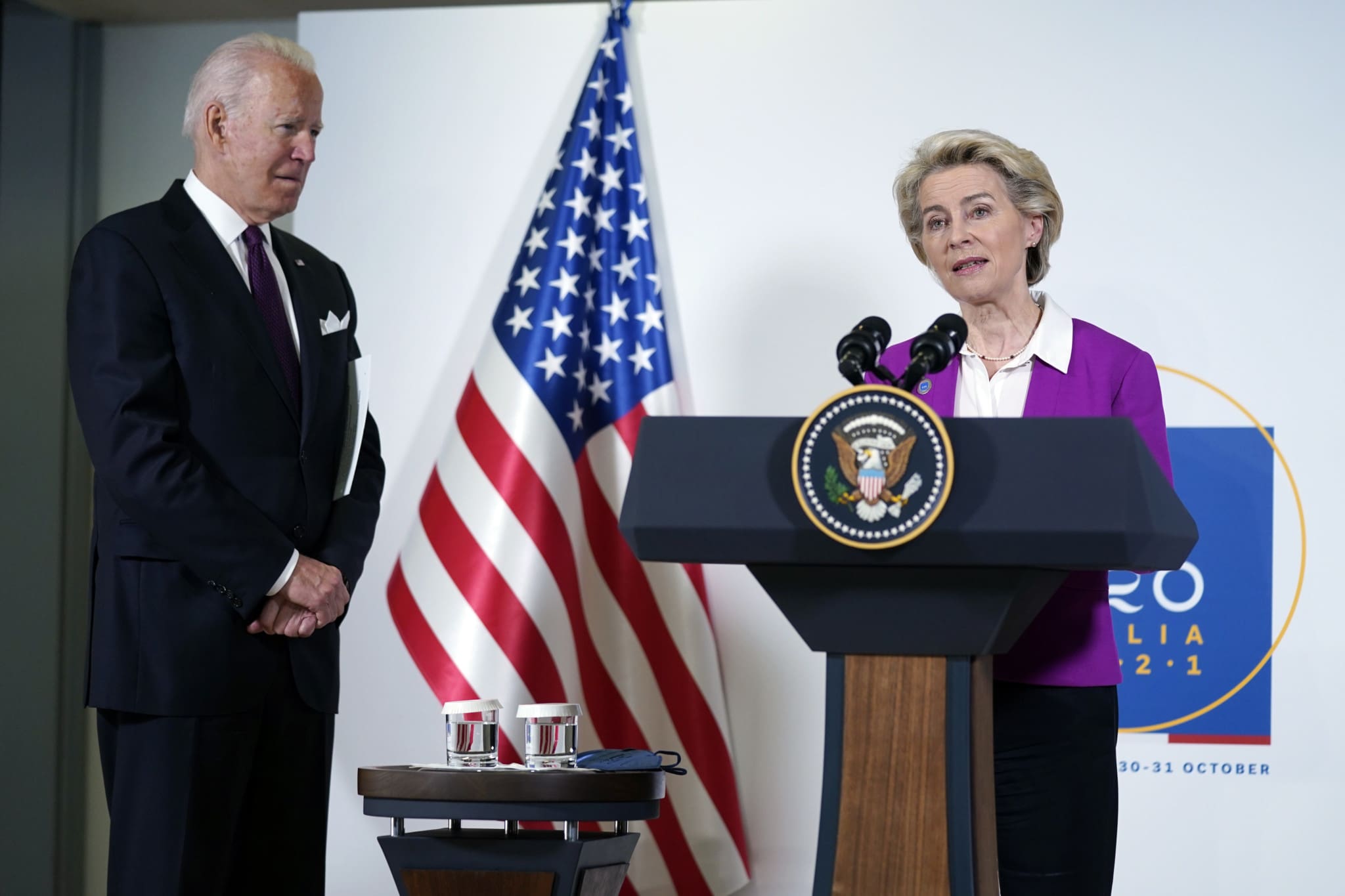U.S. President Joe Biden is seeking to convince European Commission President Ursula von der Leyen to succeed Jens Stoltenberg as NATO secretary general, The Telegraph reported on Tuesday.
The U.K. newspaper cited several sources within the defense alliance who suggested von der Leyen is Biden’s preferred candidate for the role when Stoltenberg steps down next year.
Stoltenberg announced on Tuesday that his tenure at the head of the organization is to be extended for another year until October 2024. He tweeted he was “honored” to continue in the role, adding that “in a more dangerous world, our Alliance is more important than ever.”
The former Norwegian prime minister was due to step down later this year after nine years at the helm. However, NATO leaders have failed to agree on a successor, and President Biden reportedly asked him personally to extend his term when the pair met at the White House last month, citing the need for stability due to the ongoing conflict in Ukraine.
NATO leaders were expected to discuss possible replacements at the alliance’s summit in the Lithuanian capital of Vilnius next week, but high-profile candidates such as the U.K.’s long-serving defense minister, Ben Wallace, were effectively vetoed by the White House and French President Emmanuel Macron, paving the way for Stoltenberg’s extension as a short-term measure.
In the absence of a natural successor, Biden reportedly wants von der Leyen to take the reins with one source telling the U.K. newspaper the pair have struck up “a strong bond” in recent years, sharing similar ideological views on the war in Ukraine, the threat of China, and the effects of climate change.
This could be one of Biden’s final acts as U.S. President ahead of the presidential election the following month in November 2024, and his nomination will carry considerable weight among European leaders.
Von der Leyen’s desire to “rely on Washington for intelligence” makes her an obvious choice to preserve the U.S.’ grip on the alliance’s direction of travel, added another source.
The European Commission chief has a chequered past when it comes to defense, however, dating back to her time in charge of the German defense ministry.
Von der Leyen, who served for five and a half years at the ministry until July 2019, was the subject of a high-profile investigation into accusations that the department circumvented protocol when it awarded lucrative procurement contracts to firms with personal links to ministry staff.
Von der Leyen denied any personal liability but did admit to German lawmakers during a hearing into the allegations back in 2020 that mistakes had been made. However, she insisted these decisions were made below a ministerial level and therefore outside her scope of influence.
The investigating parliamentary committee never received evidence to corroborate her ignorance of the matter after her ministerial cell phone was wiped clean following the end of her tenure as defense minister. This led to Tobias Lindner, a Green MEP sitting on the committee, filing a criminal complaint alleging the destruction of evidence, calling it a “tangible scandal.”
The state in which the Bundeswehr was left following von der Leyen’s stint in charge also led both friends and foes to criticize her performance in the role. Martin Schulz, a member of the then opposition SPD and former president of the European Parliament, stated at the time that being “our weakest minister” was “apparently enough to become Commission president.”
Rupert Scholz, a former defense minister and fellow member of von der Leyen’s CDU, claimed the condition of the Bundeswehr following her reign was “catastrophic,” adding that “the entire defense capability of the Federal Republic is suffering, which is totally irresponsible.”
Other failings during von der Leyen’s tenure related to the huge overspending on refurbishments to the Gorch Fock naval vessel, leading critics to question her competence. Despite an initial estimate for the renovations in 2015 of €9.6 million, the German defense ministry under von der Leyen ended up spending more than €135 million on the ship; this led to sharp criticism from the Federal Audit Office of the procurement process overseen by von der Leyen’s department and resulted in the dismissal of the executive board in charge of the repairs.






